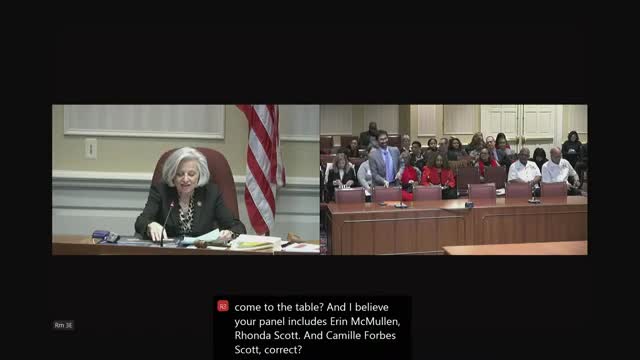Senate panel hears bill to expand nurse loan repayment, extend board oversight and preceptor tax credit
Get AI-powered insights, summaries, and transcripts
Subscribe
Summary
Senate Finance Committee members heard testimony Jan. 28 on Senate Bill 216, which would expand who may qualify for Maryland’s nursing loan repayment program, extend Secretary of Health oversight of the Maryland Board of Nursing for five more years and extend a preceptor state income tax credit scheduled to sunset in June 2025 to June 2030.
Senate Finance Committee members heard testimony Jan. 28 on Senate Bill 216, which would expand who may qualify for Maryland’s nursing loan repayment program, extend Secretary of Health oversight of the Maryland Board of Nursing for five more years and extend a preceptor state income tax credit scheduled to sunset in June 2025 to June 2030.
Supporters told the committee the bill aims to ease the nursing workforce shortage and shore up licensing operations. “Senate Bill 216 aims to expand the eligibility for the loan repayment program for nurses and nursing support staff to participants who are employed by and working at … for-profit entities, working at nonprofit entities,” said Nilesh Kalyanaraman, deputy secretary for public health at the Maryland Department of Health.
The bill would also preserve nursing support staff in the loan program and create an alternate pathway for licensure by endorsement for some applicants who otherwise would not meet minimum education qualifications, witnesses said. Rhonda Scott, executive director of the Maryland Board of Nursing, said continued departmental support helped cut licensing processing times and improve IT and staffing. “The partnership between the board and the Maryland Department of Health has resulted in significant progress in improving the board’s operational efficiency,” Scott said.
Several witnesses urged an amendment to change the preceptor tax-credit’s hour requirement. The statute currently requires 100 hours per rotation (300 hours total for three rotations) to claim the credit; multiple nursing witnesses urged reducing the requirement to 45 hours per rotation to align with COMAR academic-credit rules so more preceptors could qualify. “Reducing the hourly requirement to align with COMAR would increase potential eligible rotations,” testified Teresa DeSetta, a registered nurse and DNP student.
Other organizations — including the Maryland Hospital Association and the Maryland Nurses Association — supported the extension of departmental oversight and recommended a standing advisory committee for the loan-assistance program to help review data and market the benefit. Labor representatives for 1199SEIU urged prioritizing funds for long-term care facilities and creation of a dedicated paid training pathway for nursing support staff.
No committee questions were recorded for the panel and the hearing moved on to other bills.
Senate Bill 216 was discussed in detail at the hearing; supporters and departments indicated they were working on technical amendments.
Ending: The committee closed testimony on SB 216 after verbal support from departmental leaders, union representatives and provider groups; sponsors and stakeholders indicated further technical amendments would be circulated for committee consideration.
